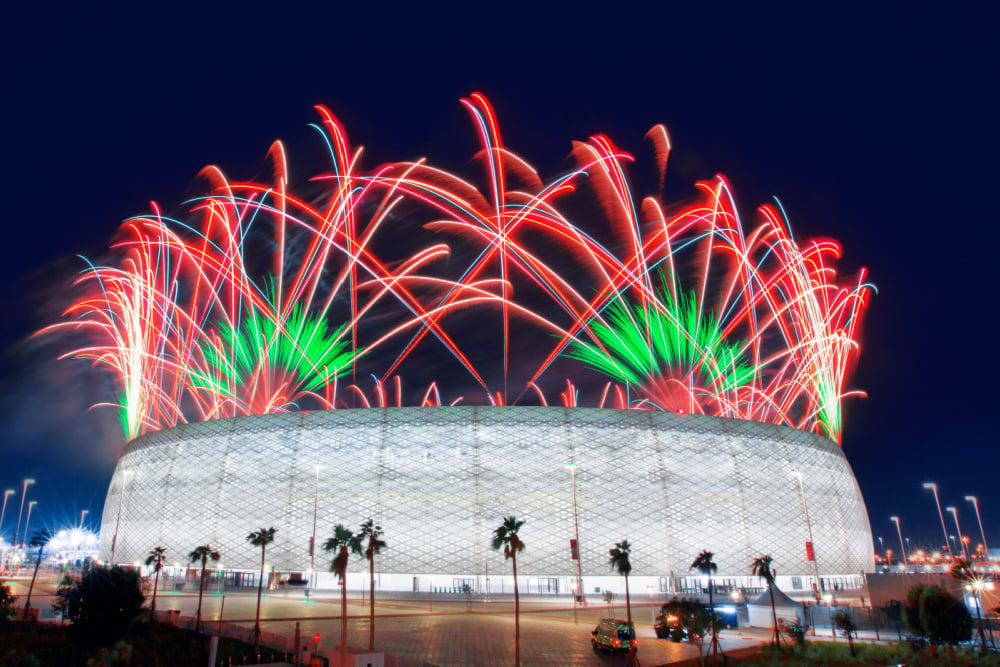As 2022 comes to a close, Insider Sport takes a look back at the notable highs and lows of the sports business industry over the past 12 months.
October didn’t start off well for British Cycling after receiving humongous backlash from the cycling community when it signed a long-term deal with Shell UK.
After the British oil and gas company joined the group as an official partner, social media was flooded with complaints in regards to the ‘huge links’ the company’s products have with damaging the environment.
“The idea of Shell helping British Cycling reach net zero is as absurd as beef farmers advising lettuce farmers on how to go vegan,” Greenpeace UK Policy Director Dr Doug Parr said.
“After being booted out of museums and other cultural institutions, Big Oil are looking at sports as the next frontier for their brazen greenwash.”
The criticism caused CEO of British Cycling, Brian Facer, to depart from his role – which he had been in since January 2021.
A big step for UFC saw the championship introduce ‘VR views of all the action’ with Meta.
Available for fans on the Meta Quest 2 headset, the streaming service for combat sports’ first live MMA event to be featured in Meta Horizon Worlds was LFA 144 – held in South Dakota.
NBA Africa announced the opening of the first physical NBA Store in Africa, in collaboration with Shesha, meanwhile in the same week, the Fédération Internationale de Volleyball (FIVB) revealed an increase in the number of participating teams in the FIVB Volleyball World Championships.
Additionally, Lionel Messi entered into a partnership with cryptocurrency exchange platform, Bitget, which kicked off with a film production a month before the FIFA World Cup.
Bitget gave fans of the iconic Argentinian footballer and winner of a record-seven Ballon d’Or Awards a ‘unique opportunity’ to explore Web3.0 and the potential of trading crypto on the exchange.
In November it became big news that several football clubs were urging the government to go ahead with plans for an independent regulator, with concerns of its absence ‘wiping them off the map’.
According to a letter addressed to Culture, Media and Sport Secretary, Michelle Donelan, over a third of clubs have gone under since 2000 and 52% were insolvent in 2020.
“To save football, we need an independent regulator. Any further delay is simply not in the wider interests of football – and crucially the communities they serve,” the letter read.
The same month saw Ivan Toney being investigated by the FA over allegations that he had been betting on football. However, in December, he was charged with 232 plus an additional 30 violations of its wagering rules.
Furthermore, with the World Cup taking most of the headlines throughout the last two months of the year, viewing figures continued to hit records as ITV revealed that 18 million people watched its broadcast of England vs USA on its ITV1 free-to-air channel.
The company then reported that its broadcast of the England vs France World Cup match was watched by 23 million people.
The channel’s biggest audience of 2022, the quarter-final was shown across ITV and as the Three Lions were narrowly defeated by France following a missed penalty from Harry Kane.
Meanwhile, prior to the tournament, Emmanuel Petit – 1998 World Cup winner and Arsenal legend – partnered with real-time sports updates provider, LiveScore to reveal a World Cup campaign which looked into the lengths football fans will go to keep up with live scores.
The survey stated that 40% say if a football match is on that they’re unable to watch, they have a ‘real fear’ of missing the score.
Furthermore, as many World Cup matches took place during work hours, 44% of Brits said the tournament takes priority ahead of their jobs. Meanwhile, one in 10 went as far as saying they would call in sick to watch games to ‘avoid getting FOMS’ (Fear of Missing Scores).






















